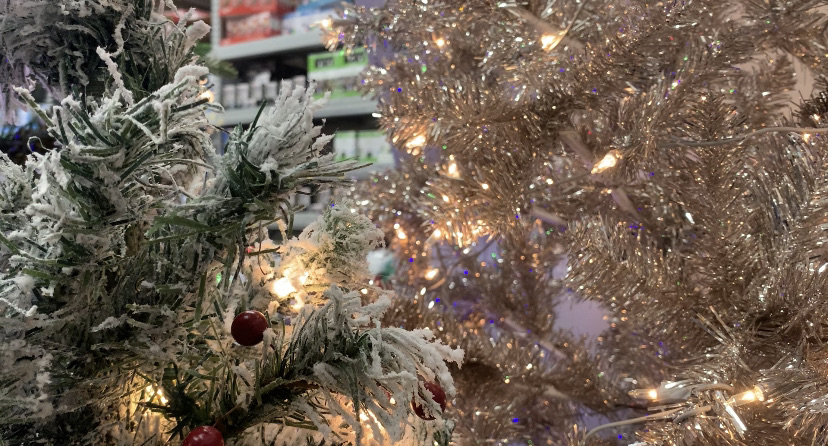By: Carsyn Cann
FAYETTEVILLE, Ark. (UATV)- As the holiday season approaches, some celebrate this time of year by putting up decorations, including the centerpiece of a Christmas tree. Between real and fake tree, there are many options for people to chose what kind of tree they want. The decision between a real or artificial tree could now come down to more than just convenience or style, but on impact on the environment.
Each holiday season, between 35 to 50 million Christmas trees are purchased in the United States. Among those, 10 to 20 million are artificial while 25 to 35 million are real. Both options have an affect on the environment and climate change.
People may assume that by not cutting down a tree means that they are helping the environment, but that is not necessarily true.
Studies say that artificial trees can have less of a carbon footprint, but only if they are kept for at least ten years. If they are not kept for the sustainable amount of time, the disadvantages may out way the benefits.
Nearly 80% of fake trees are not made within the U.S., instead are shipped from China. This process results in an increase of carbon emissions.
Real trees do not require the same amount of carbon emissions to produce and ship because they are grown in the U.S. According to the National Christmas Tree Association, there are close to 350 million tree growing on Christmas tree farms in the U.S. alone. Lauren Greenwood, the Ecosia Project Manager for the University of Arkansas, said that planting trees takes carbon emissions out of the atmosphere. “The carbon from the atmosphere, they [trees] use that and essentially are storing it in a physical way, so it’s not continuing to stay in the atmosphere and heat up the planet,” said Greenwood.
But, Greenwood said before you buy a real tree, make sure it’s grown in a sustainable way. “I would say if you don’t have a tree, and you want to buy a real one, try to find one that has been grown locally and hasn’t used any pesticides,”said Greenwood.
Greenwood said that the most environmentally friendly option is to buy local and recycle. “Make sure you dispose of the tree properly and not just throw it in the trash because putting any type of plant material in a landfill creates methane, which is a greenhouse gas,” said Greenwood. “I would suggest finding a Christmas tree recycling drop-off center or donate it to a compost bin.”
Greenwood said that the choice is tricky, but if you’re choosing to buy an artificial tree, try thrifting an already used one, and if you’re buying a real one, find one grown from a local tree farm.
Local tree farms in Northwest Arkansas include, Shipley Farms in Springdale, AR. and Wonderland Christmas Tree Farm in Pea Ridge, AR.


